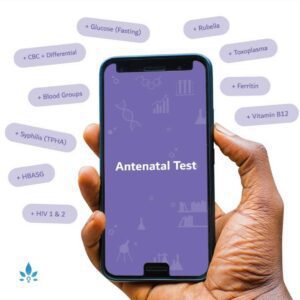Travelling Abroad? Vaccinations Your Child may Need


Venturing abroad to exotic locales like India or China pose the opportunity for an exciting adventure—but it’s important to ensure you take the necessary steps to protect your children.
A good place to start is the Center for Disease Control and Prevention’s website. You can look up your specific destination to determine if unique vaccines or health precautions are necessary prior to your trip. As a general rule, remember that vaccines take some time to become effective. You will need to make an appointment with your physician or travel medicine agency at least 4-6 weeks before your travel. You also should ensure your child’s routine immunizations are up to date, including:
- Measles-mumps-rubella (MMR)
- Chickenpox (varicella)
- Polio
- Diphteria-tetanus-pertussis (DPT)
- Hepatitis B
- Pneumococcal conjugate
- Haemophilus influenza (Hib)
- Seasonal influenza vaccine
Here are some common vaccinations that may be needed when traveling to foreign countries, as well as what they protect against.
- Hepatitis A—Can be contracted through eating contaminated food and water.
- Japanese Encephalitis—This condition is similar to the West Nile virus and is primarily transmitted through mosquitoes. If you will be outdoors for some time, this vaccine may be necessary. However, this vaccine is currently in the clinical trial stage in children under the age of 17.
- Rabies—Bites are transmitted from wild animals and bats.
- Yellow Fever—A condition transmitted through mosquitoes that is endemic in some countries.
- Typhoid—A serious bacterial disease caused by Salmonella typhi. The vaccine should not be given to children under the age of 2.
Additionally, in countries where malaria is common, a physician may recommend your family take an anti-malarial medication as a prophylactic step.
Some children are too young to receive certain vaccines. For example, travelers with children younger than age 9 months should not allow their child to receive the yellow fever vaccine. Children this young are at increased risk for experiencing encephalitis, or brain swelling, related to the vaccine. However, physicians may decide to vaccinate some infants between the ages of 6 and 8 months if they are thought to be at particularly high risk for disease.
Your local health department and child’s pediatrician can be your best assets when traveling abroad. Discuss potential immunizations with these medical professionals.
Sources:
- Centers for Disease Control and Prevention
- Destinations: Travelers’ Health.
Centers for Disease Control and Prevention - Vaccines Help Protect Travelers of All Ages.
Centers for Disease Control and Prevention - Vaccine Recommendations for Infants & Children.
KidsHealth - Do My Kids Need Vaccines Before Traveling?
Powered by Bundoo®











































